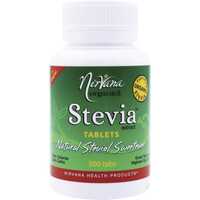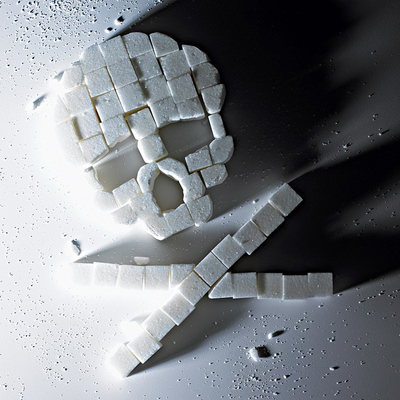Got a sweet tooth? So do I.
The bad news is that added sugars don’t provide any nutrients but they do contribute extra calories. And we all know that extra calories can lead to extra weight, putting you at risk for chronic diseases such as diabetes and heart disease.
Added sugars also play a harmful role in tooth decay. You see, certain bacteria in our mouths come together to form plaque - and sugar is their friend.
Sugar helps:
- The bacteria to multiply faster,
- The plaque to grow in size and thickness, and
- Certain bacteria turn the sugar into glue that helps them to stick to your teeth. (Yuck!)
That sticky plaque can lead to cavities and dental decay.
So how can you stop the plaque monsters, and decrease your risk of chronic disease? I’m glad you asked.
Decrease Added Sugar in Your Food
Sugar naturally occurs in many of the foods that we eat such as grains, fruits, vegetables, and milk.
However, it’s important that we are also aware of the beverages and processed foods that we consume because that’s where most of the added sugars sneak in.
Sources of added sugar:
- Soda
- Sports drinks
- Flavored milk
- “Fruit” drinks
- Baked items (cakes, muffins, pies, and cookies)
- Candy
- Ice cream
It’s really important to read food labels, because even items that are marketed as 'healthy' may surprise you with added sugar.
Try these tips for cutting back on added sugar:
- Use 100% juice with no added sugars.
- Drink sparkling water and other sugar-free beverages instead of soda.
- When you’re eating dessert, choose fruit most days and save traditional desserts for special occasions.
- Decrease the amount of sugar that you add to foods and drinks.
- Add fresh or dried fruit to cereal or oatmeal.
- Enhance foods with spices such as cinnamon, ginger, or nutmeg.
Are sugar substitutes good for you?
Well, it all depends. Sugar substitutes can be especially helpful for people who need to monitor their blood glucose levels, which include people with diabetes and pre-diabetes. Foods and beverages that use low or reduced-calorie sweeteners usually have a lower amount of carbohydrates, as well as calories. (Remember to read and compare labels because this is not always the case.) A lower amount of carbohydrates and calories is good for controlling blood glucose levels, as well as managing weight.
Xylitol
Xylitol is a reduced-calorie sweetener and a sugar alcohol. Despite the name, it does not contain alcohol and is found in various foods such as baked goods, ice cream, and candy. When introducing xylitol or other sugar alcohols you should start with a small amount and gradually increase since some people may experience a laxative effect. Pet owners should also beware because it is not safe for consumption by dogs.
Click here to view Heathy Being's range of xylitol products
Stevia
Stevia is another sugar substitute that everyone is talking about. It is made from the South American shrub, Stevia rebaudiana, and is several times sweeter than sugar (depending on whether it is refined or unrefined). Stevia is a zero calorie sweetener with no carbohydrates. It comes in various forms including powder and liquid. The taste can vary by product, with Rebaudioside A (also known as Reb-A) having the least bitterness. However, the unrefined version provides the benefits of additional nutrients.
Click here to view Heathy Being's range of stevia products
So there you have it, a sweet tooth doesn't have to be a bad thing anymore!
...and remember, qualified nutritionists at Healthy Being are available to offer further general advice to help guide you in selecting the right products. So please, feel free to contact us at anytime!
 Aminta Bullard is a Master's-trained Registered Dietitian and a regular contributor to HB Insights. She specialises in health and nutrition communications, as well as nutrition education.
Aminta Bullard is a Master's-trained Registered Dietitian and a regular contributor to HB Insights. She specialises in health and nutrition communications, as well as nutrition education.


 Certified Organic
Certified Organic Vegan Friendly
Vegan Friendly  Vegetarian
Vegetarian Organic Ingredients
Organic Ingredients Dairy Free
Dairy Free Gluten Free
Gluten Free Keto Friendly
Keto Friendly






























